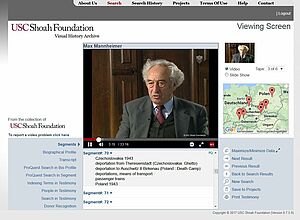- The Institute
- Research
- Dictatorships in the 20th Century
- Democracies and their Historical Self-Perceptions
- Transformations in Most Recent History
- International and Transnational Relations
- Edited Source Collections
- Dissertation Projects
- Completed Projects
- Dokumentation Obersalzberg
- Center for Holocaust Studies
- Berlin Center for Cold War Studies
- Publications
- Vierteljahrshefte
- The Archives
- Library
- Center for Holocaust Studies
- News
- Dates
- Press
- Recent Publications
- News from the Institute
- Topics
- Munich 1972
- Confronting Decline
- Feminist, Pacifist, Provocateur
- Der Mauerbau als Audiowalk
- Digital Contemporary History
- Transportation in Germany
- Envisaged Futures at the End of the Cold War
- From the Reichsbank to the Bundesbank
- German Federal Chancellery
- History of Sustainabilities: Discourses and Practices since the 1970s
- Changing Work
- Democratic Culture and the Nazi Past
- The History of the Treuhandanstalt
- Foreign Policy Documentation (AAPD)
- Dokumentation Obersalzberg
- Hitler, Mein Kampf. A Critical Edition
- "Man hört, man spricht"
- IfZ
- Center for Holocaust Studies
- Visual History Archive
- Printversion
Visual History Archive

The Leibniz Institute for Contemporary History (IfZ) has offered its users full access to the Visual History Archive of the USC Shoah Foundation since 2017.
Moved by personal meetings during the making of the film Schindler’s List, Steven Spielberg founded the non-profit organization “Survivors of the Shoah Visual History Foundation” in 1994. By 1999, over 50,000 interviews were conducted with Jewish Holocaust survivors and with others persecuted by the Nazi regime (including Sinti and Roma, the politically persecuted, Jehovah’s Witnesses, survivors of “Aktion T4”, and homosexuals), as well as with eyewitnesses to Nazi crimes (including helpers, rescuers, and liberators). The foundation cataloged and indexed the footage by 2006, creating the world’s largest collection of interviews on the Holocaust and National Socialism.
The foundation has been part of the University of Southern California, Los Angeles since 2006 as the USC Shoah Foundation: The Institute for Visual History and Education. The collection has since been expanded to include interviews with survivors and eyewitnesses of other genocides such as the Armenian Genocide of 1915-1917, the Nanjing Massacre of 1937-1938, the genocide by the Khmer Rouge in Cambodia between 1975 and 1978, and the Rwanda genocide of 1994. The Visual History Archive now includes around 54,000 interviews at a combined length of approximately 114,000 hours, conducted in 62 countries in 41 languages.
Around 50 institutions from around the world are now cooperating with the USC Shoah Foundation in order to provide full access to the minute-by-minute keyword-searchable and mostly transcribed interviews. Alongside institutions in Berlin and Frankfurt, the Munich site of the Leibniz Institute for Contemporary History (IfZ), is the only location in Germany that provides that database service. The interview database is a particularly valuable tool for research and instruction for the staff and fellows at the Center for Holocaust Studies at the IfZ. The collection, in which chiefly those can be heard who survived the Nazi regime’s violent rule, is also an important addition to the database on the prosecution of Nazi crimes by German judicial authorities since 1945, in which over 50,000 cases prosecuting Nazi crimes are catalogued that had been carried out by state prosecutors and courts in West and East Germany after 1945.
Users can access the collection of interviews via the Database Infosystem (DBIS) at no cost on site at the IfZ library and archives. Access is possible via the PCs in the reading rooms and the Leibniz Institute for Contemporary History Information Center, or also using one’s own computers via the Wi-Fi network. The library also can provide users with headphones for that purpose. The Visual History Archive Online provides a first impression of the collection free of charge, with a selection of around 1800 interviews.
Opening hours for Reading Room 1 and the Information Center of the Leibniz Institute for Contemporary History:
Mondays – Fridays, 9am to 7pm
Information and assistance provided by the library:
Mondays – Fridays, 9am – 12:30pm


